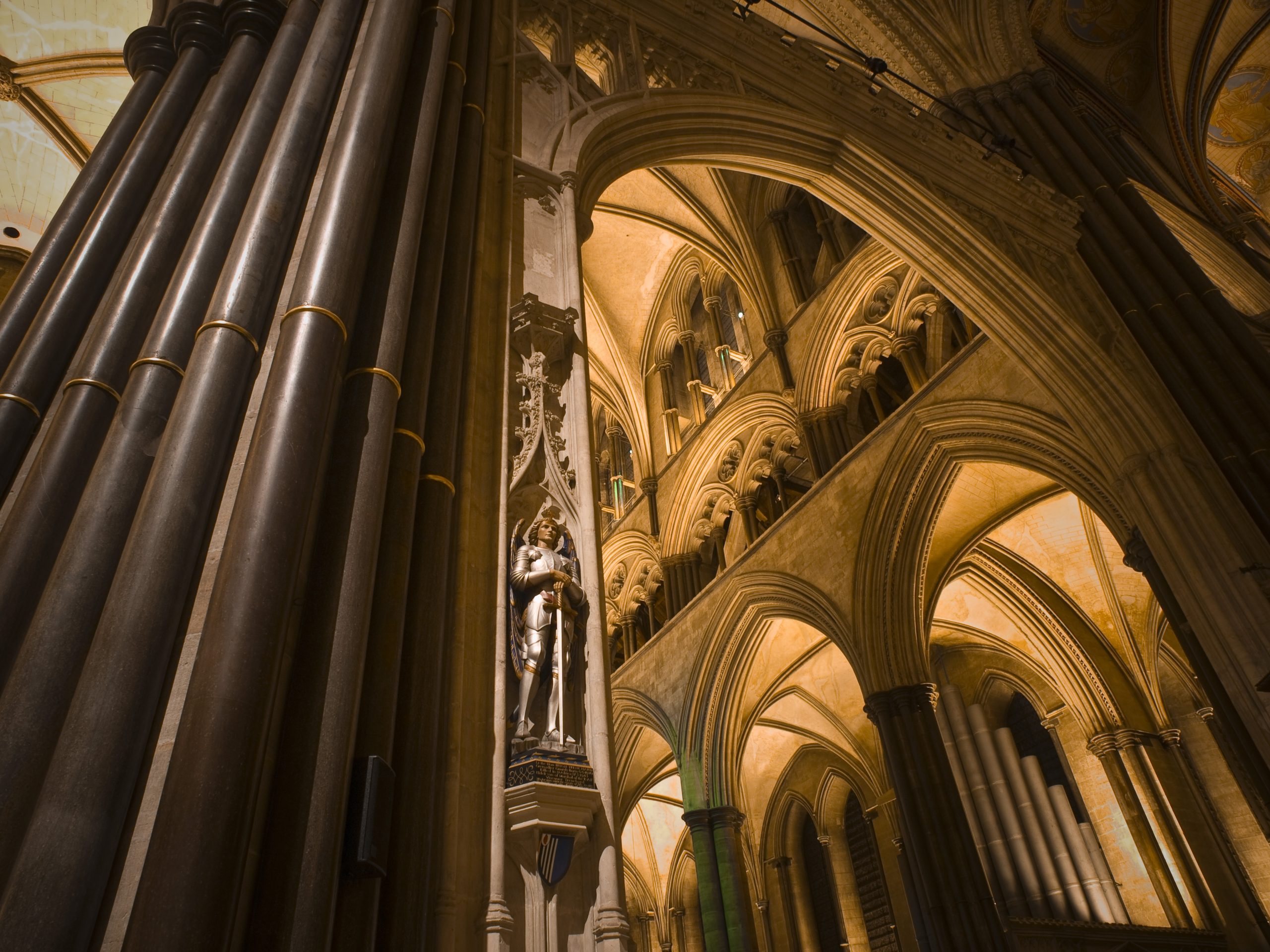Islands

First weekend of the Salisbury International Arts Festival
(Acts 16.16-34; John 17.20-end)
‘No man is an island, entire of itself’, as famously written by John Donne, and reminding us that anyone’s death is a diminution, a loss to oneself akin to a part of a continent being broken off.
We are in the early days of the Salisbury International Arts Festival, restored to us after the pandemic-induced interruptions of the last two years, and focussing this year on the theme of islands. I don’t know what underpinned the choice of that theme, but I can see in it echoes of the near universal experience during these two years of isolation, hemmed into our own spaces, islanders in our own homes. Maybe the varied events of these three weeks will give us each insights into what it is to live in, or to go into, a place on its own, apparently separated from the neighbouring continent. Many people are still coming to terms with that uninvited experience of 2020 and 2021, which may explain why the trickle of revelations of rather different experiences at the heart of our government has held such enduring political and emotional potency.
The book the Church calls ‘The Acts of the Apostles’ becomes at a certain stage rather more accurately ‘the acts of Paul’, as we follow his journeys round the eastern half of the Roman empire, visiting city after city. Sometimes these travels are from island to island, with departures delayed by weather conditions, including the desperate dangers of shipwreck. But one could also describe the cities to which he went, which were culturally Greek but each of which sat amidst a quite different culture which came to be known as pagan – of the surrounding countryside – one could describe those cities as islands. Paul did not make his home in them, he hopped from place to place, as he left each new Christian community to forge its common life. He became a kind of consultant, asked for his advice and sending it in those letters, which have been so carefully preserved through the millennia that we still have them in our Bibles.
We heard him out and about in Philippi – a quintessentially Greek city, named after the father of Alexander. And on their way to prayer, Paul is driven to exasperation by a slave girl announcing what they are about: what she cries out doesn’t seem inaccurate or offensive – but in his annoyance Paul brings it to an end, and so lands himself and his companions with a beating and in prison, because he’s taken away the income stream of this slave’s master. By the end of today’s rather long passage, this had all resulted in the conversion of the jailer and the baptism of his whole household – and it doesn’t even end there, as the consequences of this passing moment in the city carry on long after verse 34.
‘No man is an island, entire of itself.’ And no community, however apparently isolated, is entire of itself either. The chains of unintended effects, from the annoyance of a preacher on his way to pray, or from workplace socialising, or from almost any other individual or communal human act, are part of life as God has given it; we find ourselves part of a continent.
The prayer of Jesus at his last supper in John’s gospel, is that his disciples should share the unity and the love which he himself shares with God his Father. Often this gospel can give the impression of an embattled person or community of faith, surrounded by, and having no connection with, an alien darkness. But the concept expressed in John is more accurately of an overriding purpose of self-giving love, which is a dynamic interaction, binding together and radiating out, much as a bright light transforms the surrounding darkness.
This arts festival is one of the great features of the common life of Salisbury. It is made up of moments of experience which are both individual and shared. No one knows, including the artists, what will come out of all this; but thank God for human imagination and creativity, given and provoked, and offering us glimpses into the dynamic and loving creative work of God.




